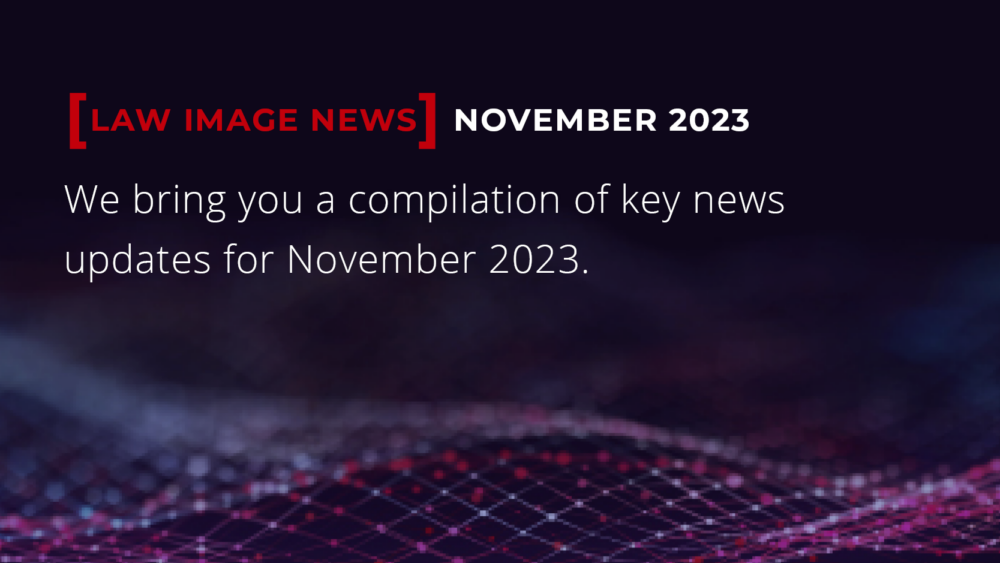From Thomson Reuters’ generative AI for the legal profession to AI’s impact on cybersecurity, we bring you a collation of key updates for November 2023.
Thomson Reuters launches generative AI-powered solutions to transform how legal professionals work
Thomson Reuters has introduced a series of initiatives centred around its Generative AI (GenAI) to revolutionise the legal profession. The highlight is the incorporation of GenAI into the advanced legal research platform, AI-Assisted Research on Westlaw Precision. This AI skill, available to US customers, aims to provide swift answers to complex legal queries by leveraging innovation from Casetext.
Thomson Reuters plans to expand GenAI capabilities across its products, introducing an integrated AI assistant called CoCounsel, with GenAI skills. The company aims to redefine legal work, offering attorneys a comprehensive toolkit for enhanced research and workflow efficiency. The AI-Assisted Research feature allows users to pose complex legal questions in natural language, receiving synthesised answers linked to supporting authority from Westlaw content. Future plans include extending GenAI capabilities globally, starting with the UK, Canada, Australia and New Zealand in 2024. Thomson Reuters emphasises its commitment to delivering high-quality AI results, backed by its extensive legal research system and expert vetting of databases.
Axiom’s 2023 Australia-based General Counsel (GC) survey report
Axiom’s inaugural survey of 300 Australia-based General Counsels (GCs) reveals the increasing challenges they face. Despite growing volumes and complexities of legal matters, Australian GCs are contending with shrinking budgets, making it difficult to hire additional support.
The survey indicates that budget constraints are expected to impact the effectiveness of already under-resourced legal departments, with GCs expressing scepticism about law firms or internal hires alone addressing their resourcing challenges due to high costs and difficulty finding suitable talent. The report highlights that Australian GCs are stressed and dissatisfied, citing unmanageable workloads and poor work-life balance. Specific findings show that 72% of GCs have experienced budget cuts averaging 4% of company revenue, amounting to a significant decrease of $4.3 million AUD.
Additionally, 85% of GCs report an increase in both the volume and complexity of legal matters, creating a perfect storm for legal teams struggling to do more with less. Notably, over one-third of GCs feel their teams lack the right legal expertise to address current or anticipated needs. The report aims to delve deeper into the impact of budget cuts, exploring where GCs feel a lack of expertise or bandwidth and how they expect these needs to evolve over time.
2024 legal landscape: Six strategies for GCs to navigate in-house counsel challenges
Axiom’s recent webinar, “2024 Legal Landscape: Predictions and Preparations for GCs,” sheds light on challenges faced by legal leaders and in-house teams in the fast-evolving legal landscape. The discussion, led by legal industry veteran Zach Abramowitz, featuring Andrew Stephens, General Counsel at MongoDB, and Rick Hoel, International Commercial and Privacy Attorney at Axiom, explored key issues and proposed six actionable solutions:
1. Understaffing and overwork
Challenge: 80% of in-house lawyers feel resources are lacking.
Solutions: Advocate for technology investment, outsourcing and prioritise job satisfaction through flexibility and support.
2. Increased dissatisfaction
Challenge: Monotonous work, limited strategic roles and minimal client interaction impact counsel satisfaction.
Solutions: Provide diverse work, establish clear career paths and foster virtual camaraderie for remote work.
3. Workload management
Challenge: Efficiently implementing workload management poses a significant challenge.
Solutions: Utilise technology like AI and reconsider staffing models.
4. Optimising in-house support
Challenge: Increasing headcount isn’t always ideal or immediate.
Solutions: Employ flexible talent solutions for tailored legal support.
5. Cultivating opportunities amid struggles
Challenge: The legal industry transition brings challenges and opportunities.
Solutions: Proactively set boundaries, embrace growth opportunities, and maintain work-life balance.
6. Evolving Demands
Challenge: Law firms are the go-to for expertise but are expensive and not part of the in-house team.
Solution: Utilise flexible legal talent providers to meet evolving demands effectively.
Cyber Security pros fear AI will do more harm than good
A recent global survey by Cybersecurity Insiders, conducted on behalf of Enea, reveals that 75% of cybersecurity professionals believe the world is on the brink of encountering malicious artificial intelligence (AI) capable of bypassing most known cybersecurity measures. Over a quarter anticipate this happening within the next year, with 50% predicting it within the next five years. The survey identifies phishing, social engineering tactics and malware attacks as the most likely to become more dangerous with the integration of AI. The findings, compiled into a comprehensive report, offer insights into cybersecurity professionals’ fears, hopes and plans regarding AI’s impact on the industry, providing valuable recommendations for navigating the evolving threat landscape.
New announcements made ahead of the Federal Government’s updated Cyber Security Strategy release
Australia is set to implement a groundbreaking change, making it mandatory for businesses to report ransomware incidents, demands or payments. Under a no-fault system, businesses will receive government guidance without penalties. Details, including thresholds and exemptions, will be revealed in the upcoming Cyber Security Strategy.
Further, Telecom companies in Australia will be categorised as ‘critical national infrastructure’ providers, requiring them to adhere to the same regulations as essential sectors. This mandates telecom firms to update the government on their cybersecurity measures. The move, responding to escalating cyber threats, will impact the broader ICT industry and emphasise the need for businesses to bolster cybersecurity readiness.
About Law Image: Law Image is a leading document management company. Founded in 1999 and headquartered in Melbourne, we have offices in Sydney, Brisbane, and Perth. Law Image supports law firms and government departments across Australia with end-to-end legal document management solutions.
For Marketing & Branding enquiries, contact:
Siddhi Chavan (communications@lawimage.com)
Marketing Specialist




Comments are closed.